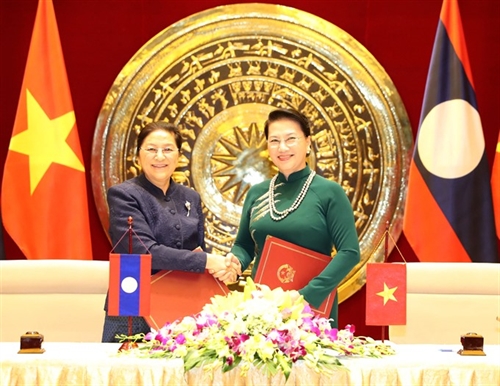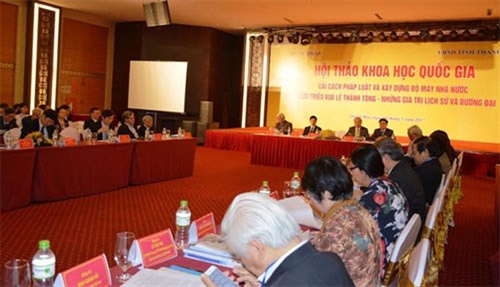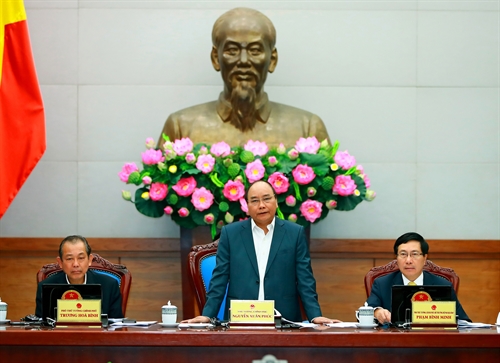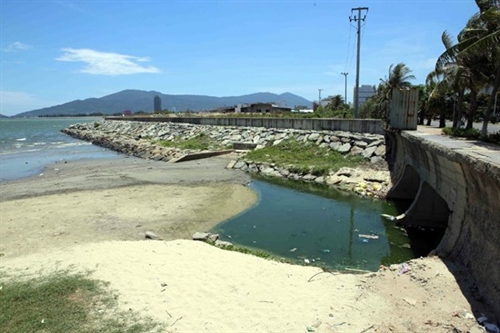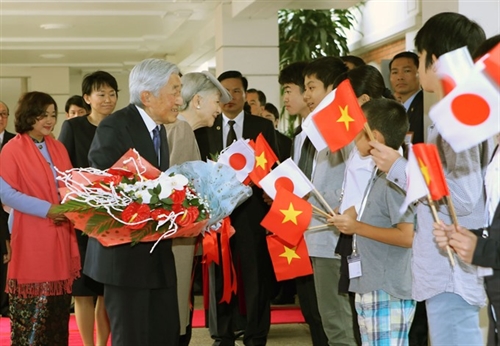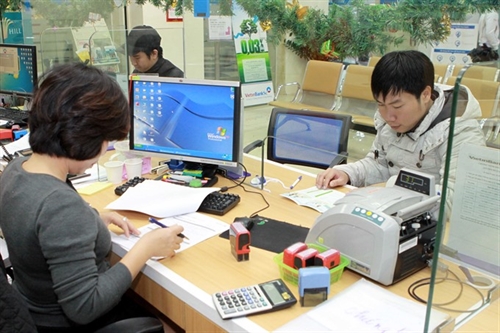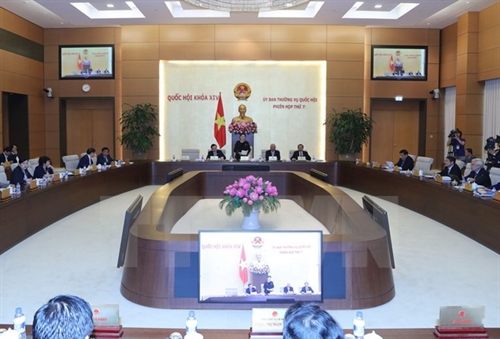The 14th National Assembly Standing Committee (NASC) convened its eighth session yesterday with debates focusing on amendments to the draft Law on Denunciations.
NA Chairwoman Nguyen Thi Kim Ngan said that during the week-long meeting, the NASC would discuss revised versions of nine laws concerning tourism, railways, technology transfer, planning, foreign trade management, fisheries, forest protection and development, public debt management, and denunciations.
The committee is also expected to approve aresolution on format and technique of presenting legal documents of the NA, NASC and President, and another one on regimes and conditions to guarantee the work of NA deputies.
The committee members planned to discuss the draft resolution on cooperation among NASC, Government and Vietnam Fatherland Front in oversight and social criticism.
They will also examine regulations on fines for violations relating to foreign affairs and international cooperation.
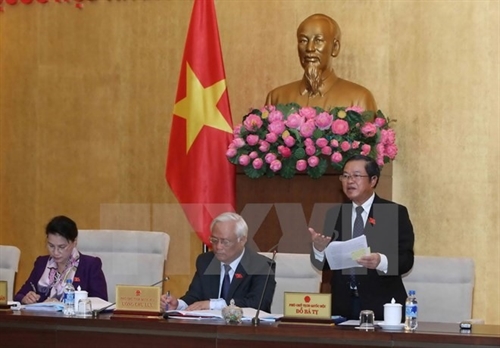 |
| The 14th National Assembly Standing Committee (NASC) convened its eighth session on March 14 with debates focusing on amendments to the draft Law on Denunciations__Photo Phương Hoa/VNA |
Talking about the draft Law on Denunciations, Government Chief Inspector Phan Van Sau said that the 2011 Law on Denunciations needs amendments because of its shortcomings, including those relating to jurisdiction, settlement of denunciations, procedures and reaching conclusions in denunciation cases.
The amendments also aim to realize new constitutional regulations on human rights and fundamental rights of citizens.
Under the draft, controversial issues remain, especially those relating to anonymous denunciations and forms of denunciation.
Sau said that the Government preferred written denouncing forms and direct denunciations to identify responsibilities of denunciators to avoid misuses of denunciations and inaccurate denunciations.
Others wanted denunciations to also be announced by fax, email or phone so cases are addressed in a timely fashion.
The draft compilers suggested anonymous denunciations should not be accepted as if an inaccurate denunciation was sent, there would be no basis to punish the anonymous sender.
Sau also said State agencies solved just 87.4 percent of anonymous denunciations in the last few years and nearly 60 per cent of the solved cases featured inaccurate denunciations.
“If anonymous denunciations are lawfully accepted, relevant agencies will face difficulties with their workload,” Sau said.
Head of the NA’s Legal Committee Nguyen Khac Dinh said after assessing the draft law, some members of the legal committee agreed that the regulation on anonymous denunciation needed more consideration and should not be added to the revised law now.
However, others said that anonymous denunciations enclosed with detailed documents, photos, sound or video recordings should be accepted and verified, Dịnh said.
Head of NA Justice Committee Le Thi Nga said according to Vietnam’s Law on Anti-Corruption, agencies/organizations and individuals should create favorable conditions for citizens to directly denounce, submit written forms or report via phones or the internet. She called for consistency between the two laws.
NA Chairwoman Ngan agreed with Nga, adding that Vietnam was developing e-Government with improved information technology.
Ngan said other forms of denunciations - email, fax, phones and SMS are accepted only when sent directly to authorized agencies.
She also noted that anonymous denunciations with detailed evidence should be considered, as at a minimum they are clues for agencies to investigate the accusations.- (VNS/VLLF)

